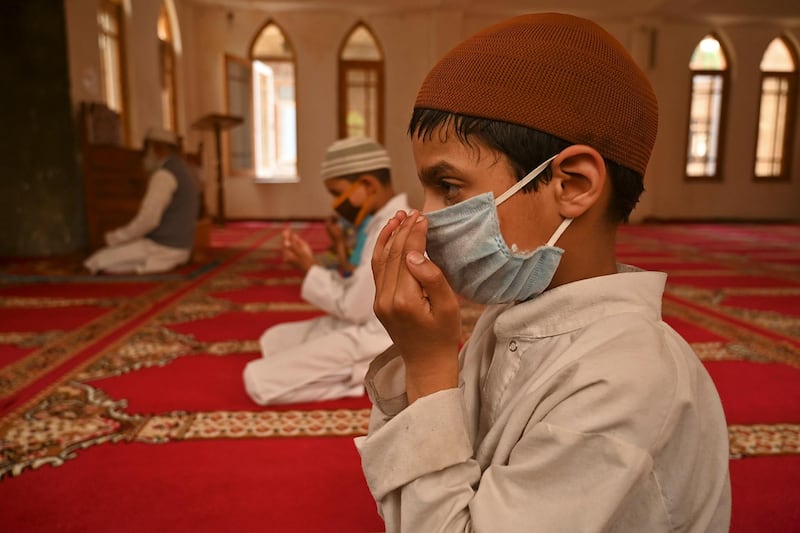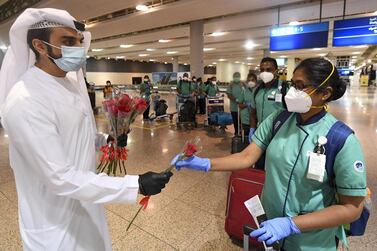Ramadan this year is unlike any ever experienced before. While the holy month is usually an occasion for people to come together and families to reconnect, physical distancing means that these long-held traditions have been disrupted.
And as the coronavirus remains a worldwide threat, enforcing distancing and hygiene measures is all the more crucial to avoid a second wave of infections. Over the past two weeks, the number of new cases in the UAE has increased, from an average of 500 new cases a day to more than 600. It is unclear whether the rise in numbers is due to increased infections or if it is proportional to the rise in testing.
The UAE had been testing 20,000 people daily in the lead-up to Ramadan, a number that has climbed to up to 29,000 since then. Health experts, however, have warned that some of the newly discovered cases are a result of the family gatherings commonly organised during Ramadan, and that these occasions have become a new vector to spread the virus unintentionally.
Dr Amna Al Dhahak, spokeswoman for the UAE government has warned that "some families are still distributing food and sharing with their neighbours." She pointed out that while these steps are "done with good will," they could lead to spreading the virus inadvertently. This attachment to customs is understandable. However, it defies not only common sense but the recommendations of both religious authorities in the UAE and the Ministry of Health
This phenomenon is not restricted to the UAE’s borders. In Jordan, where infection rate had gone down to zero, a man who had contracted the coronavirus held an iftar attended by more than 100 people. More than half of the attendees were infected and the incident put new strain on government efforts to curb the spread of the disease. The coronavirus poses a dilemma that Muslims all around the world now have to face. To truly show the extent of their love and care for their families, they must, for now, keep away from them as much as possible, at least physically. This is especially difficult during Ramadan, but the cost of failing to comply with these measures is too great. After all the effort exerted for containment, complacency is unacceptable.
The story of Abdullahi Rodhile, the UAE's first patient to recover from Covid-19 after going through stem-cell therapy, is a case in point. After becoming infected, the father of 10 was put in an induced coma for nearly three weeks. His health had rapidly deteriorated due to underlying conditions. "We had lost hope," his sister Zainab told The National.
After undergoing stem cell therapy in conjunction with traditional Covid-19 treatments, Mr Rodhile was able to recover, but he was brought back from the brink of death. His story is one of incredible resilience. It is also a reminder of the terrible suffering that may await others like him, should one lower their guard and endanger their loved ones, even unintentionally.
With the last days of Ramadan and Eid on the horizon, let us remain cautious and continue to connect with our families and friends virtually and over the phone. In the absence of a vaccine or a cure, precaution is our greatest line of defence.






